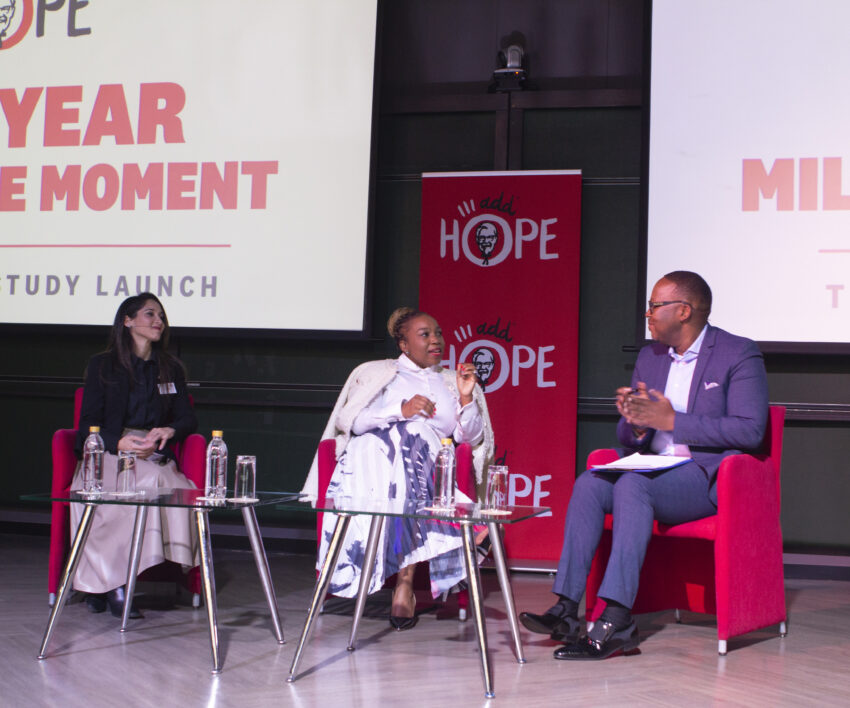
This year officially marks the 15th anniversary of KFC’s renowned charity initiative, Add Hope. The program ensures that hunger and malnutrition in the country is eliminated by seeing that children across South Africa have access to a decent meal through the voluntary R2 donations customers make with each purchase at a KFC kiosk.
To reflect on how much they have accomplished over the past 15 years, KFC recently hosted the launch of their first-ever Impact Assessment Report session. The event was held at the Gordon Institute of Business Sciences (GIBS), in Melville Johannesburg.
In attendance was a renowned journalist and Carte Blanche presenter Bongani Bingwa (host), as well as panelists which included Dr. Tracey Toefy who along with DEZ Advisory Services conducted the Add Hope Impact Assessment. Also in attendance was Akhona Qengqe, general manager of KFC Africa, as well as the two organisations who are part of the beneficiaries of the Add Hope initiative represented by Dr. Onyi Nwaneri (CEO of Afrika Tukkun) and Sue Wildish (Managing director of the Lunchbox fund).
View this post on Instagram
Speaking at the launch Dr. Tracy explained that when assessing the impact that the Add Hope initiative has had within the country, they took on a research approach that encompassed a comprehensive review of secondary data that was readily available from the organisation’s annual reports and stories from partner organisations.
They then further had interviews with key stakeholders involved with the program which allowed for a rich understanding of the program’s reach due to the combination of both qualitative and quantitative results.
While Add Hope’s primary goal is ensuring that each child goes to bed with a meal, Dr. Tracey discovered that this has resulted in several additional benefits ranging from improved physical health, school attendance, and social skills to reduce psychological stress.
With contributions from customers amounting to almost R644 million, and KFC donations at an additional R391 million, more than R1 billion rand has been spent on feeding children.
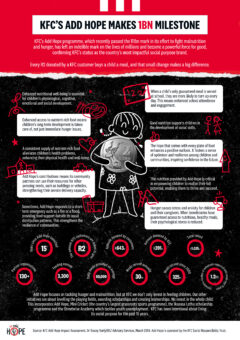
Speaking on what surprised her most while conducting the study, Dr.Tracey said:
“Ultimately, what surprised me was the incredible far-reaching effects of the programme. It was its scope and its size. I didn’t know how many partners were involved or the logistics and how well it was managed – it is such a well-oiled machine.”
She describes it as being “one of the largest corporate and social initiatives in the world… and has truly become a symbol of small change making big change.”
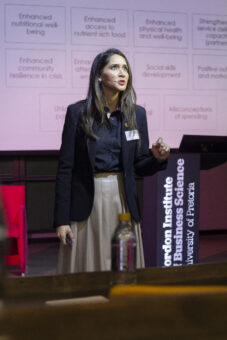
While there may have been recent allegations that KFC has handed employees disciplinary notices due to not collecting donations, and others coercing customers to donate a R2.00, Akhona Qengqe clarified the speculation regarding the matter.
“We have never and will never set targets for our team members to donate the donation. It is a purely voluntary donation that our team members can ask for, but they can never force a customer and we can never ask our team members to set a target,” she explained.
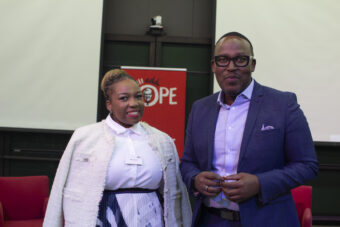
As it stands, Add Hope has partnered with more than 130 non – governmental organisations and community feeding schemes. KFC’s reach is beyond just providing meals, but also caters to further learning by providing scholarships for quality education while also investing in Mini Cricket at grassroot level.
One of its beneficiaries, Onyi Nwaneri of Afrika Tikkun said: “Before KFC, we fed like everybody else. With KFC, we feed with intention, with insight into the science behind nutrition and what it achieves with different ages of children.”
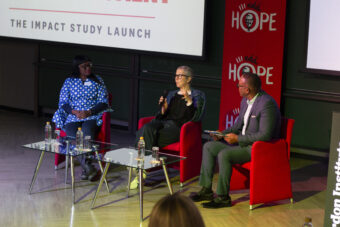
Also see:KFC worker faces disciplinary for failing to collect ‘Add Hope’ R2.00’s | Bona Magazine




